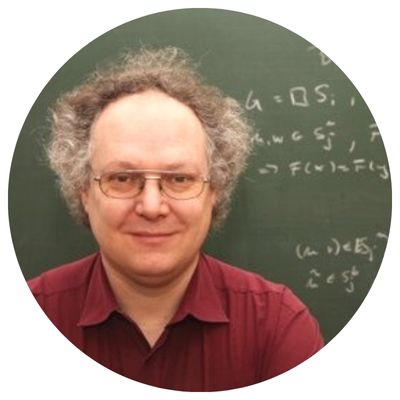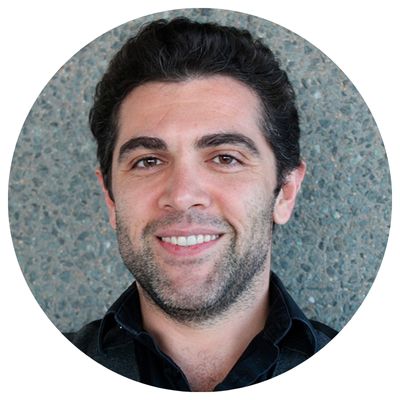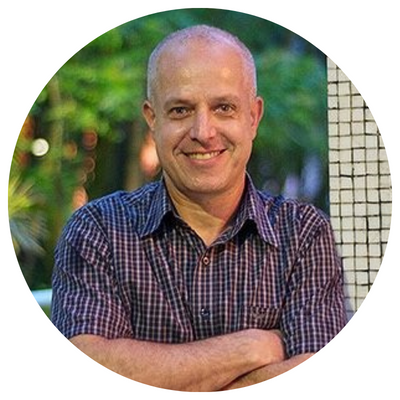Keynote 1 – Peter F. Stadler (University of Leipzig)

Title: Incongruent Evolution of Sequence and Structure in RNA and Proteins
September 21 / 16:00 – 17:00
Evolutionary pressures may lead to discrepancies between the conservation of sequence and structure. In both proteins and
RNA this may lead to an apparent shi between sequence and structural features. Conventional alignment-based methods fail to identify consensus structure in this case. Bi-alignments represent sequence alignment, structure alignments, and their relationship explicitly and serve as suitable formal framework to describe incongruent evolution.
——————-
Keynote 2 – Yaser Hashem (Institut Européen De Chimie Et Biologie, França)

Title: Structural snapshots of the cytosolic and mitochondrial mRNA translation machineries in kinetoplastids
September 22 / 14:30 – 15:30
Biography: Dr. Hashem is a Research Director and Group Leader at the Inserm (National Institute of Health and Medical Research of France), he is based at the IECB (European Institute of Chemistry and Biology) in Bordeaux (France). He obtained a PhD in Molecular and Structural Biology from the University of Strasbourg (France), after which he worked as a Research Associate at Columbia University in the city of New York (NY, USA) for nearly five years, in the group of Prof. Joachim Frank (Nobel Laureate in Chemistry 2017) in the field of structural biology and cryo-electron microscopy (cryo-EM). In 2015, Dr. Hashem accepted a position as a Group Leader in Strasbourg (CNRS, ARN) before joining the Inserm in the city of Bordeaux. His work combines a set of molecular and structural biology techniques aimed at investigating mRNA translation regulation in pathogenic protozoa and their eukaryotic hosts. Among the studied topics, the group of Dr. Hashem is interested in the mRNA translation initiation process and its existing structural and functional differences between kinetoplastids and mammals, form-dependent mitochondrial mRNA translation regulation in kinetoplastids and mitochondrial mRNA translation in photosynthetic organisms.
——————-
Keynote 3 – Prof. Sérgio Lifschitz (PUC-Rio)

Title: A database research perspective of bioinformatics
September 22 / 18:00 – 19:00
Associate Professor at PUC-Rio, Brazil, Informatics Department. His main research areas involve data engineering, bioinformatics, autonomous computing, and social media data applications. He is the Principal Investigator of the Bioinformatics and Databases Laboratory (BioBD) at PUC-Rio, with R&D projects involving academia and private and public institutions. He has been developing tools and systems in partnership with Fiocruz, UNB, UFRRJ, UFRJ, and INCA. An ACM, IEEE, and SBC member, he has been the general chair of the Brazilian Workshop on Bioinformatics (WOB) in 2003 and the Brazilian Symposium on Bioinformatics (BSB) in 2007, 2010, and 2019.
——-
——-
Minicourses

Biological Databases – September 21 / 10:00 – 13:00
Genome assembly: a practical approach – September 23 / 09:00 – 12:00
Waldeyr Mendes Cordeiro da Silva, Ph.D.
Professor no IFG, assistente de pesquisa na Fiocruz, e atualmente, chefe da Divisão de Dados e Inovação da Imprensa Nacional, atua nas áreas de bioinformática, gestão e ciência de dados.
——

Introduction to Machine Learning for Bioinformatics – September 22 / 10:00 – 13:00
Marcelo S. Reis, Ph.D.
Professor no Instituto de Computação da Universidade Estadual de Campinas (UNICAMP). Há mais de duas décadas atuando como pesquisador em Bioinformática, ele utiliza técnicas de Aprendizado de Máquina no estudo de sistemas biológicos, em particular em sinalização celular no contexto da biologia do câncer.
——-
——-
Panel: 20 years of WOB/BSB
September 23 / 12:00 – 13:00

Dr. João Carlos Setubal is a full professor at the Department of Biochemistry at the Institute of Chemistry at the University of São Paulo. He holds a Ph.D. in computer science from the University of Washington and was a professor and researcher at the Virginia Bioinformatics Institute and the Computer Science department at Virginia Tech (USA) and a collaborator professor at the Biocomplexity Institute at Virginia Tech. He is a former coordinator of the Graduate Program in Bioinformatics at USP. His main area of expertise is bioinformatics. He works with analysis of the information contained in genomes (DNA), transcripts (mRNA), and proteins, and how this information can be used for a better understanding of organisms and their evolutionary histories. His research can contribute to areas of interest to society such as medicine, agriculture, energy, and the environment. His research group develops and uses computational tools for various tasks related to the above objective handling large volumes of data.
——-

Dr. André Ponce de Leon is a professor at the Institute of Mathematics and Computer Science, University of São Paulo (ICMC-USP), São Carlos campus, CNPq Research Productivity Scholarship 1A and Vice-President of the Brazilian Computer Society (SBC). He is coordinator of the IARA network, Artificial Intelligence Recreating Environments. He was a member of the CNPq Computer Science Advisory Committee (CA-CC), from 2018 to 2021 (coordinator from 2019 to 2020). From 2013 to 2017 he was a board member of the International Association for Statistical Computing (IASC), of the International Institute of Statistics. He holds a Bachelor’s (1987) and Master’s in Computer Science (1990) from the Federal University of Pernambuco, and a PhD in Electronic Engineering from the University of Kent (1994). His main research interests are Machine Learning, Data Mining and Data Science, with applications in several areas.
——-

Dr. Sérgio Lifschitz is an associate professor at PUC-Rio, Brazil, Informatics Department. His main research areas involve data engineering, bioinformatics, autonomous computing, and social media data applications. He is the Principal Investigator of the Bioinformatics and Databases Laboratory (BioBD) at PUC-Rio, with R&D projects involving academia and private and public institutions. He has been developing tools and systems in partnership with Fiocruz, UNB, UFRRJ, UFRJ, and INCA. An ACM, IEEE, and SBC member, he has been the general chair of the Brazilian Workshop on Bioinformatics (WOB) in 2003 and the Brazilian Symposium on Bioinformatics (BSB) in 2007, 2010, and 2019.
——-
——-

Dr. Maria Emília Machado Telles Walter is an adjunct professor at the University of Brasília. She holds a degree in Mathematics from the University of Brasília (1980), a Master’s degree in Mathematics from the University of Brasília (1986) and a PhD in Computer Science from the State University of Campinas (1999). Has experience in Computer Science, with emphasis on Bioinformatics and Computational Biology, working mainly on the following topics: high performance genome sequencing projects, comparative genomics, identification and classification of non-coding RNAs, genome rearrangements, computer cloud for bioinformatics applications.
——-
——-

Dr. Daniel de Oliveira is a professor at the Instituto de Computação, Universidade Federal Fluminense (IC/UFF) since February 2013. He received a Doctor’s degree in Systems and Computer Engineering from COPPE/UFRJ in 2012 and a Master’s degree in Systems and Computer Engineering in 2008, also by COPPE/UFRJ. Since 2013, he has led the eScience Research Group at Universidade Federal Fluminense (UFFeScience). He is a CNPq level 2 productivity fellow since 2016 and a Young Scientist of Our State from FAPERJ also since 2016. His research interests include data science, cloud computing, provenance data management, scientific workflow management, data parallelism, bioinformatics and data mining.
——-